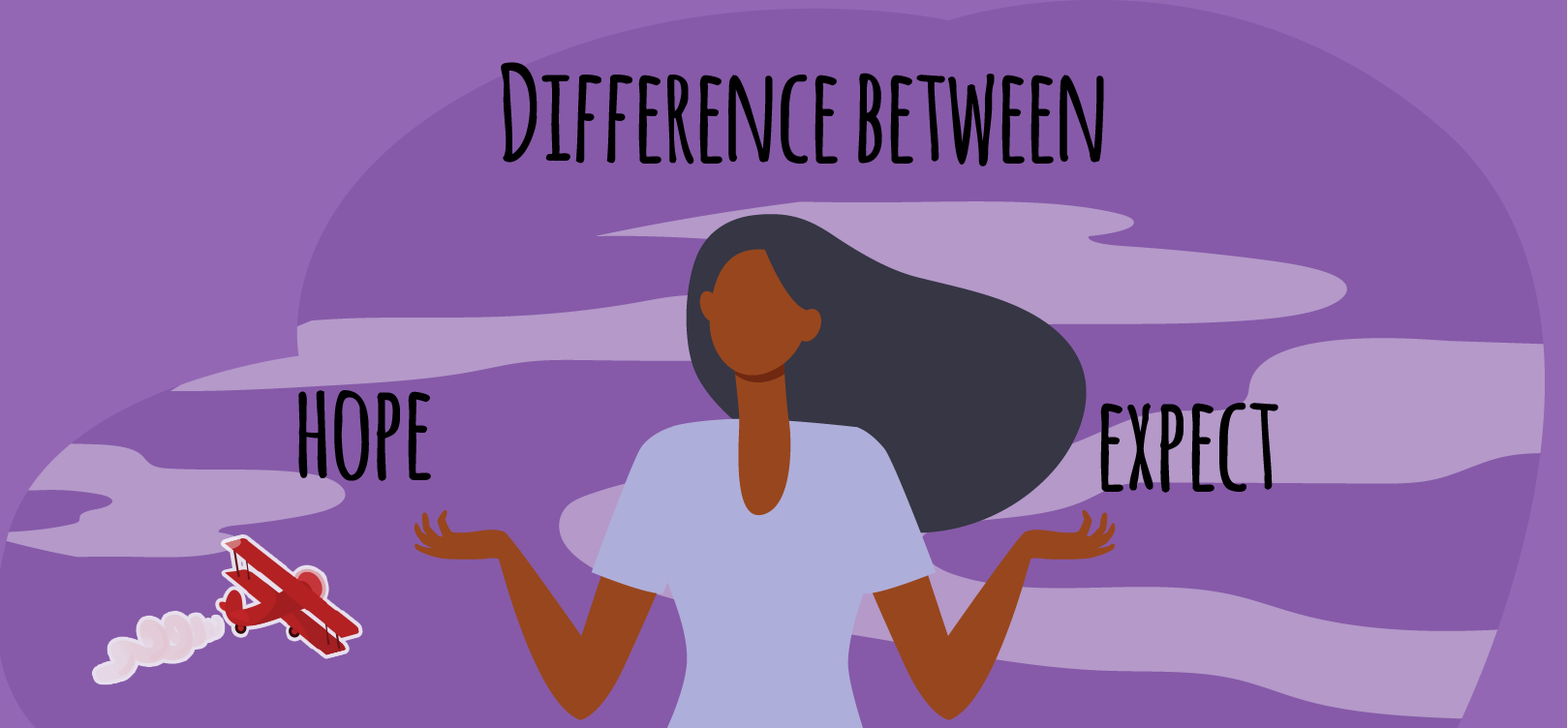Difference between hope and expect

Difference between hope and expect
INDEX OF CONTENTS
- What does ‘expect’ mean?
- How do you use ‘expect’?
- What does hope mean?
- How do you use ‘hope’?
- conclusion
As in all English languages there are also words that are confusing and lead to errors , such is the case between hope and expect. These words offer doubts for students at levels B2 and C1, something impossible in lower grades because expect is not used much at lower levels. In this article we are going to establish the precise criteria to differentiate them according to their definition.
What does expect mean?
You can define the expectation (expectativa) as “rigorous zeal to an unreal belief”. That is, expectation demands exactly what we want to happen regardless of what is actually happening. Expectation is therefore inflexible and rigid waiting. It is unable to yield, bend or change. So in this case, we use expect when we think something is going to happen, even though we don’t necessarily want it to.
How do you use expect?
Like hope, expect also follows a number of patterns and structures . Let’s see them in the following table:
| expect + object |
|
| expect + to-infinitive |
|
| expect + object + to-infinitive |
|
| expect + that-clause |
|
Further…
Expect also means “think” or “suppose . ” When it has this meaning, we don’t normally use it in continuous times:
- Will he have bought the necklace by now? / (¿Habrá comprado el collar ahora?)
- I expect so. (NO: I’m expecting so.) / (Eso espero. (NO: lo espero)).
- expect that he’ll be wearing that bright blue shirt. (NO: I am expecting) / (Espero que lleve esa remera azul brillante. (NO: estoy esperando))
What does hope mean ?
In another sense hope (la esperanza) turns out to be very different from expectation , because if it is in the assumption that something is really going to happen, whether it is false or not, hope is only the desire for something to happen.
Therefore, hope is flexible. Hope admits reality, always acknowledging what it is, but never resigning itself to what it is. So hope is not limited by previous experience, because we can expect more than we know. I mean, we can hope for better. Our imaginations and dreams influence our hopes.
In other words, when we say I hope… it is because we want something to happen, whether it is possible or not. We simply express the wish that this be so.
¿ How hope is used?
The important point to understand the difference between hope and expect is to know how it is used , that is, what patterns it follows and how sentences with hope are constructed. So let’s see the structures we use with hope
hope + to-infinitive
- I was hoping to see my family next week. (Esperaba ver a mi familia la próxima semana).
hope + for sth.
- We’ve already got two boys so we’re hoping for a girl next. (Ya tenemos dos niños, así que esperamos una niña a continuación.)
hope + that-clause
- I hope that your sister recovers quickly from the operation (Espero que tu hermana se recupere rápidamente de la Operación).
An example of hope is when you wish for a victory from your team. The definition of hope is a feeling full of optimism or a wish for something to happen. An example of hope is when a person believes that their life situation will pass and their bad luck will end. Have confidence; trust.
The main difference between expect and hope is that expectations usually depend on someone, while hopes do not.
Expectations and hopes are beliefs or wishes about the future. An expectation is a strong belief in the future, while hope is a feeling of optimism or a wish for something to happen. Although these two are similar, they are not the same. Hopes can be more positive and healthy than expectations since expectations, which are often up to others to fulfill, have the ability to hurt and disappoint you more.
Hope can also be a tool for self-deception.
False hope is a hope that has no meaningful basis in reality. … Such an ambitious hope is not only irrational, it is also often reckless and can sometimes even be dangerous. Because it can increase your risk of getting into more trouble than you might already have.
conclusion
By way of conclusion we can say that “To expect” is something rational . It’s when you expect something to happen, and you have very good reason to believe it will. “To hope”, on the other hand, is more emotional. It is similar to the meaning of the verb “wish”. Whenever you see “hope” think of “hope” . When you expect something to happen or that you want it to happen, but you don’t know if it will happen, the verb you should use is “hope”.
Examples:
- She is expecting a baby. (= Está embarazada, por lo que “espera” un bebé”.)
- She is hoping that it will be a girl. (= Está embarazada pero no sabe si es niño y niña. Espera que sea una niña.)
Keep in mind that with “expect” we can expect both good and bad things to happen, the big difference with “hope” is that with it we can only expect good things.
Remember the most important! Certify your level of languages, here we leave you all the calls so that you can choose the one that best suits you.



Thank u very much, God bless u, have learn alot from this page.
Thank you for explaining that.
Please next more.